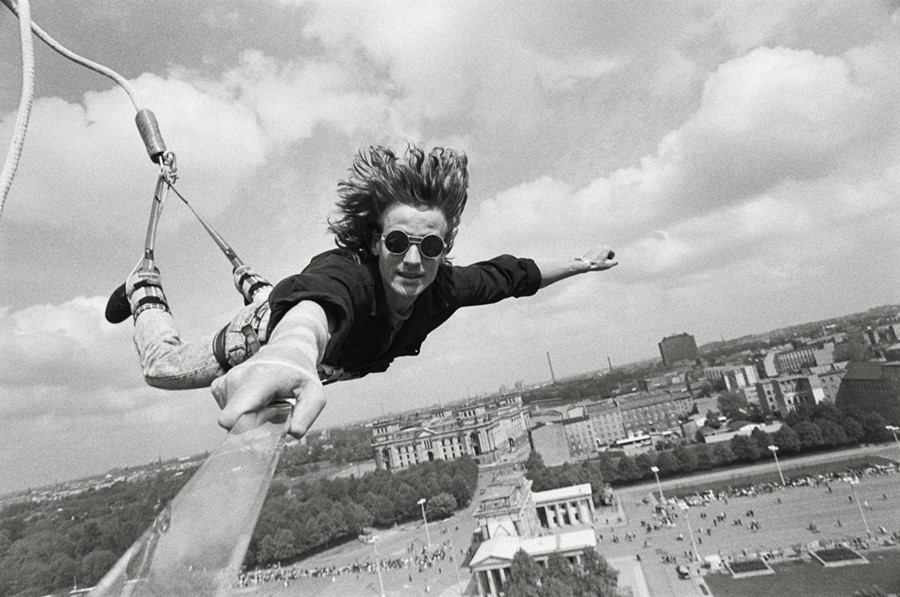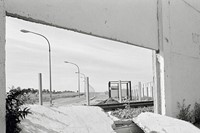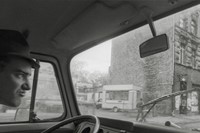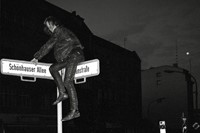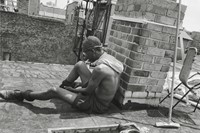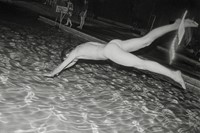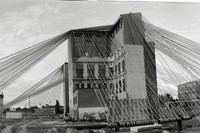We talk to bobsairport about their book depicting the life and times of post-wall Berlin
After the wall came down in 1990, artists and creatives flocked to Berlin to lend a hand in forging the new world that was taking shape in the formerly communist side of the city. The east, and in particular the Mitte district, was like a blank canvas on which this young generation could paint a new type of existence. Decades of neglect and poor maintenance during the communist period had created a wealth of derelict real estate – disused flat blocks, abandoned industrial sites and crumbling commercial property – that was ripe for transforming into creative spaces. Gradually there began to emerge artists communes, ad hoc galleries and performance venues, a new bohemia from which the nineties generation would fashion a distinctive aesthetic out of ideals of community, co-operation and untrammelled creativity.
Berlin Wonderland, a new book from Berlin based photographic agency Bobsairport, looks back on this era, interspersing documentary photography with first hand accounts from its protagonists – former members of the Berlin scene – to give an evocative portrait of this remarkable cultural moment. Here the founders discuss the book and their own experiences living in the Berlin of the nineties.
What was your experience of Berlin at the time? Is there any one memory of life in the city that you particularly cherish, or that you think sums it all up?
For me strolling through abandoned places of the ex GDR was something which I liked a lot. And the concerts from bands coming from all over the world was a great experience. If I have to sum it up, I would say the general freedom was exceptional: we did not need a lot of money and were doing exactly what we wanted to do; making art, working hard and having a nice party at the same time.
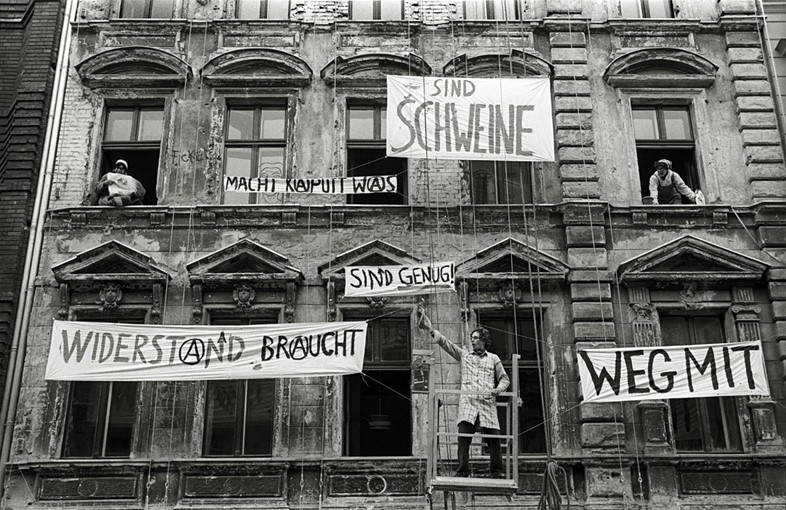
Are a lot of the protagonists from the book still living life in similar ways?
It is not possible to still live like it is 1990. But many people developed their talents during that time and made their way. Some of the people now have important cultural positions in the city.
How has Berlin changed since the nineties? Is it still as vibrant and creative?
The city has changed in a lot of ways. Freedom is one. The government has come to the city. Living is much more expensive now. Art spaces and squats have been evicted. But compared to other capitals there is still a huge cultural scene going on. But you cannot compare it to the 90s.
What was the Mitte scene’s relationship with the rest of the city like?
We were living in a parallel universe. Some people live in the west and did not dare to cross the ex-border and visit east Berlin. And in the east some squats had very good relationships with their neighborhood while others completely ignored their surroundings. Also, the neo-Nazis could cause a lot of trouble.
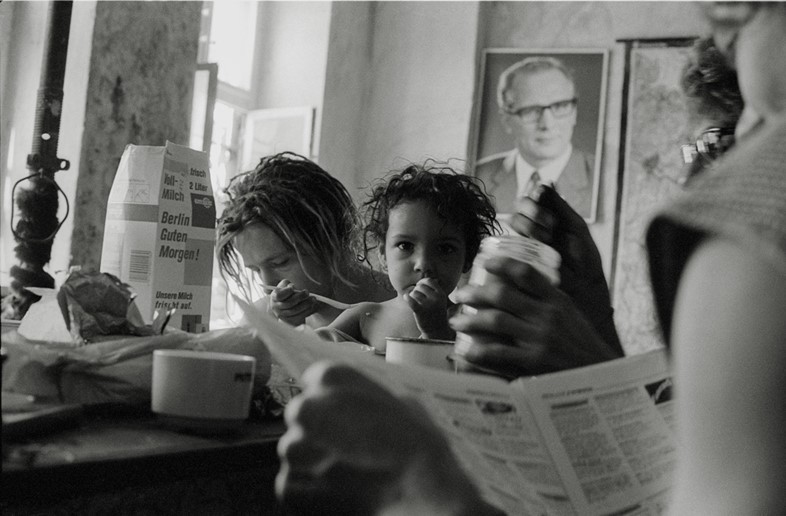
There’s one quite touching scene where a telephone line is discovered behind Tacheles and everyone forms a big queue and waits their turn to call home. Where were all these people from? What was their relationship to their homes like?
People came literally from all over the world. Telecommunication was not well developed in the east so these illegal telephones were a life-line for those who wanted to keep in touch with their families or friends. To leave messages for your friends in town, we used written notes on the doors. This was a common system to keep in touch.
What do you think were the great achievements of Berlin in the ‘90s?
A lot of people learned their trades like music, theater, dance, clubs and booking during the nineties and are now quite successful doing their work here in Berlin. The nineties were the foundation of the positive image on which Berlin is still feasting. It would be nice if the Berlin government would pay more attention to this and would give some more support to the underground culture because this is one of the main reasons why people from all over the world visit Berlin.
Berlin Wonderland: Wild Years Revisited, 1990–1996 is out now, published by Gestalten.
Text by Max Fletcher
